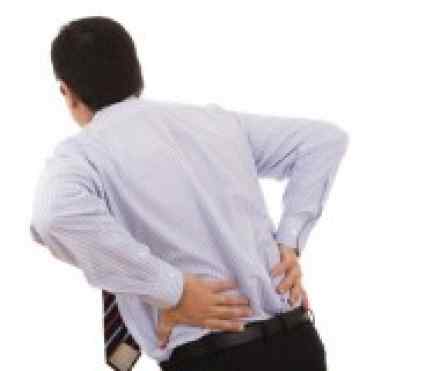
What is it?
A pinched nerve occurs when too much pressure is applied to a nerve by surrounding tissues — such as bones, cartilage, muscles or tendons. This pressure disrupts the nerve's function, causing pain, tingling, numbness or weakness.
A pinched nerve can occur anywhere in your body. A herniated disk in your lower spine, for example, may put pressure on a nerve root, causing pain that radiates down the back of your leg (sciatica). Likewise, a pinched nerve in your wrist can lead to pain and numbness in your hand and fingers (carpal tunnel syndrome).
With rest and other conservative treatments, most people recover from the effects of a pinched nerve within a few days or weeks. Sometimes, surgery is necessary to relieve pain from a pinched nerve.
Symptoms
Pinched nerve signs and symptoms include:
- Numbness or decreased sensation in the area supplied by the nerve.
- Sharp or burning pain, which may radiate outward. When the pinched nerve comes from the spinal cord, coughing or sneezing may aggravate the pain.
- Tingling, "pins and needles" sensations (paresthesia).
- Muscle weakness or twitching in the affected area.
- Frequent feeling that a foot or hand has "fallen asleep."
The problems related to a pinched nerve may be worse when you're sleeping.
Causes
A pinched nerve occurs when too much pressure (compression) is applied to a nerve by surrounding tissues. In some cases, this tissue might be bone or cartilage — such as in the case of a herniated spinal disk that compresses a nerve root. In other cases, muscle or tendons may be the culprits. In the case of carpal tunnel syndrome, a variety of tissues may be responsible for compression of the carpal tunnel's median nerve, including swollen tendon sheaths within the tunnel, enlarged bone that narrows the tunnel, or a thickened and degenerated ligament.
A number of conditions may cause tissue to compress a nerve or nerves. Injury, poor posture, osteoarthritis, stress from repetitive job, hobby or sports activities, and obesity are common causes of nerve pressure.
This pressure causes inflammation of the nerve and disrupts the nerve's function. If a nerve is pinched for only a short time, there's typically no permanent damage. Once the pressure is relieved, nerve function returns to normal. However, if the pressure continues, chronic pain and permanent nerve damage can occur.
Risk factors
The following factors may increase your risk of experiencing a pinched nerve:
- Posture. Poor posture adds pressure to your spine and nerves.
- Osteoarthritis. Nerves can become pinched in the bone spurs caused by osteoarthritis.
- Overuse. Jobs or hobbies that require repetitive hand, wrist or shoulder movements, such as assembly line work, increase your likelihood of a pinched nerve.
- Obesity. Excess weight can add pressure to nerves.
- Heredity. Some people appear to be genetically predisposed to conditions that lead to pinched nerves.
Diagnosis
Your doctor will ask about your symptoms and conduct a physical examination.
If your doctor suspects a pinched nerve, you may undergo some tests. These tests are often completed at the same time and take about one hour:
- Nerve conduction study. Patch-style electrodes are placed on your skin to stimulate the nerve with a mild electrical impulse. You'll feel a sensation like an electric shock, which may be uncomfortable. Test results tell your doctor whether you have a damaged nerve. This test may also be called a nerve conduction velocity test.
- Electromyography. This test measures the electrical discharges produced in muscles. During the test, a thin needle electrode is placed into the muscle to record electrical activity. You will be asked to rest and contract the muscle, such as by bending your arm. You may feel pain when the needle is inserted, and your muscle may be sore for a few days after the test. Test results tell your doctor if there's damage to the nerves leading to the muscle.
- Magnetic resonance imaging (MRI). MRI, a technique that uses a magnetic field and radio waves to create cross-sectional images of your body, may be used if your doctor suspects you have nerve root compression in your spine.
References
http://www.medicinenet.com/pinched_nerve_overview/article.htm
http://www.mayoclinic.org/diseases-conditions/pinched-nerve/basics/symptoms/con-20029601
http://www.healthline.com/health/pinched-nerve-shoulder-pain
http://www.webmd.com/pain-management/guide/compressed-nerves

